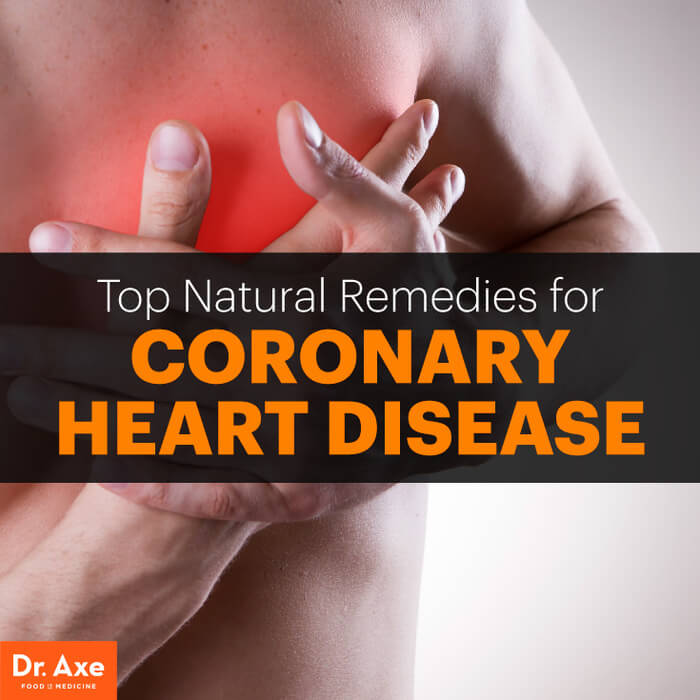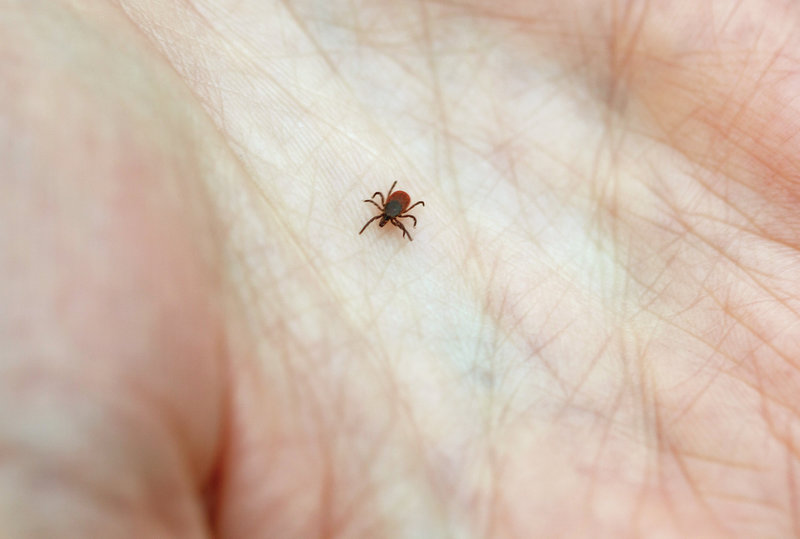Ten Steps to Preventing Heart Disease Naturally
Today I will summarize the approach to preventing heart disease I’ve been writing about for the past couple of years.
After today’s post I’m going to move on to some new topics. There are so many mainstream health myths out there it’s hard to cover them all! In the next few months we’re going to shift our attention to the digestive system. We’ll talk about the real cause of acid reflux (GERD), the high rates of gluten intolerance in the US and its consequences when undiagnosed and untreated, the hidden problem underlying Irritable Bowel Syndrome (IBS), and more.
As you know if you’ve been following this blog, heart disease is primarily caused by inflammation and oxidative damage. This is now well-accepted amongst medical researchers, though many physicians and medical professionals are still unfortunately focused on cholesterol.
It follows, then, that to prevent heart disease our primary goal should be to reduce inflammation and oxidative damage. How do we do that? Follow these nine steps:
- Don’t eat industrial vegetable oils.
Industrial vegetable oils like corn, soy, cottonseed, sunflower, and safflower are high in omega-6 polyunsaturated fatty acids (n-6 PUFA). Countless studies show that n-6 PUFA promote both oxidative damage and inflammation, and significantly raise the risk of heart disease. Industrial vegetable oils are found in nearly all processed and packaged foods, and in most foods cooked in restaurants. My rule here is simple: if it comes in a package, don’t eat it. And make eating out a special occasion, not a daily ritual.
- Eat traditional, saturated fats.
For more than five decades we’ve been brainwashed to believe that saturated fat causes heart disease. It’s such a deeply ingrained belief that few people even question it. It’s just part of our culture now.
But several recent studies have confirmed what many researchers have known all along: that eating saturated fat doesn’t cause heart disease. Saturated fats are protected against oxidative damage – one of the primary causes of heart disease. What’s more, saturated fats have numerous health benefits.
- Eat less sugar (including simple carbs).
Most people know that eating sugar wreaks havoc on their health. But what many don’t understand is that all carbohydrates eventually break down into sugar in the body. Simple carbohydrates such as rice, potatoes, pasta and bread can cause spikes in blood sugar and insulin, both of which contribute to oxidative damage and inflammation – and consequently increase the risk of heart disease.
For decades the American Heart Association and American Diabetes Association have been promoting a low-fat, high-carb diet. Research has shown that this diet actually increases the risk of both heart disease and diabetes! If you want to steer clear of these conditions, a high-fat, low-carb diet is your best choice.
The average American gets 57% of his/her calories from highly refined cereal grains and polyunsaturated (PUFA) oils. The #3 source of calories, behind grains and PUFA, is sugar and high-fructose corn syrup. Refined grains, polyunsaturated oils and sugar are all major contributors to both inflammation and oxidative damage. Clearly the low-fat, high-carb diet has been a failure.
- Eat nutrient dense foods (especially organ meats and egg yolks!)
The key to proper nutrition is eating nutrient-dense foods. Most people think about vegetables when they think of vitamins and minerals. However, a serving of beef liver has between 10-100 times the amount of key vitamins and minerals than those found in carrots or apples.
Egg yolks are another of nature’s superfoods. One egg provides 13 essential nutrients, all in the yolk (contrary to popular belief, the yolk is far higher in nutrients than the white). And despite conventional wisdom, it’s entirely safe to eat three eggs a day. In fact, studies show that egg consumption actually increases large, buoyant LDL cholesterol – which is the type that doesn’t cause heart disease!
Grass-fed, organic animal products and raw dairy (butter, milk) are also high in health promoting nutrients, and should be eaten liberally.
- Eat fermented foods.
Almost all healthy, traditional cultures that have been studied regularly consume fermented foods like yogurt, kefir, sauerkraut, kim chi and kombucha. These foods have numerous health benefits, but in the context of heart disease one of the most important reasons to include them in the diet is that they are one of the few dietary sources of vitamin K2.
Unfortunately, many people are not aware of the health benefits of vitamin K2. The K vitamins have been underrated and misunderstood up until very recently in both the scientific community and the general public. While K1 is preferentially used by the liver to activate blood clotting proteins, K2 is preferentially used by other tissues to deposit calcium in appropriate locations, such as in the bones and teeth, and prevent it from depositing in locations where it does not belong, such as the soft tissues.
A 1993 study showed that those in the highest third of vitamin K2 intake were 52 percent less likely to develop severe calcification of the arteries, 41 percent less likely to develop heart disease, and 57 percent less likely to die from it.
- Take your high-vitamin cod liver oil.
Cod liver oil is one of the only supplements I recommend to people. It’s a great source of long chain omega-3 fatty acids (EPA and DHA), which protect against inflammation. But even more importantly, cod liver oil is one of the few dietary sources of vitamin D. Low vitamin D levels associate with nearly every common non-communicable disorder, including obesity, diabetes, cardiovascular disease, autoimmune disease, osteoporosis and cancer.
But not all cod liver oils (CLOs) are created equal. Most commercially available CLOs are processed with heat and chemicals. Because heat and chemicals destroy the naturally occurring vitamins, synthetic vitamins are then added back in. Synthetic vitamins don’t have the same benefits as naturally occurring vitamins, and in fact they can be toxic at high doses (hence the hysteria of vitamin A toxicity from taking too much cod liver oil).
I recommend Extra Virgin Cod Liver Oil from Rosita as my preferred cod liver oil product. It is real Norwegian cod liver oil that is fresh, raw & handcrafted from wild livers using a very rare ancient extraction technique which uses nature to separate the oil from its liver. No chemicals, solvents and mechanical devices are ever used during the extraction process, and it is free of heavy metals, dioxins, PCBs, and other contaminants (verified by independent testing on Rosita’s website).
- Be active & go outside.
Physical inactivity is likely a major causative factor in the explosive rise of coronary heart disease in the 20th century. During the vast majority of evolutionary history, humans have had to exert themselves to obtain food and water. Even at the turn of the 20th century in the U.S., a majority of people had jobs that required physical activity (farmers, laborers, etc.) Now the majority of the workforce has sedentary occupations with little to no physical activity at all.
Currently more than 60% of American adults are not regularly active, and 25% of the adult population is completely sedentary. People that are physically inactive have between 1.5x and 2.4x the risk of developing heart disease.
On the other hand, regular exercise reduces both inflammation and oxidative damage. Even relatively low levels of activity are protective – as long as they are consistent. A public review at Harvard University showed that 30-minutes of moderate physical activity on most days of the week decreases deaths from heart disease by 20-30%.
It’s also important to spend time outdoors and get some sun. In addition to the obvious psychological and even spiritual benefits, sunlight exposure will boost your vitamin D levels. Just remember that sunscreen blocks your body from making vitamin D from sunlight.
- Maintain a healthy weight (not too fat or thin)
Countless studies show that obesity causes both inflammation and oxidative damage, and significantly raises the risk of heart disease. For those who are obese, losing weight is perhaps the most important first step to take to reduce their risk profile.
However, most people aren’t aware that being too skinny can also increase the risk of heart disease.
It is also important to keep in mind that where you store body fat is probably more important than how much body fat you have. For example, body fat stored in the legs has consistently been shown to protect against metabolic risk in longitudinal studies. In contrast, abdominal fat, and in particular visceral fat, is independently associated with increased risk of morbidity and mortality.
- Don’t smoke and minimize exposure to other toxins
Smoking promotes both oxidative damage and inflammation. Smoking as few as one cigarette a day can increase the risk of heart disease by 40 percent, while smoking 40 cigarettes a day increases the risk by 900 percent.
Over 70,000 synthetic chemicals are used commercially and approximately 1,000 new chemicals are introduced into our environment each year. These include insecticides, herbicides, gasoline, dry cleaning chemicals, personal care products, and more.
Environmental toxins cause both inflammation and oxidative damage, which as you certainly know by now, cause heart disease. Avoid exposure to these toxins as much as possible. Using environmentally friendly cleaning and personal care products in your home is a great start.
- Manage stress & enjoy life
In the famous INTERHEART study, stress tripled the risk of heart disease. This was true across all countries and cultured that were studies. The primary mechanism by which stress causes heart disease is by dysregulating the hypothalamic-pituitary-adrenal (HPA) axis. The HPA axis is directly intertwined with the autonomic nervous system, and it governs the “fight-or-flight” response we experience in reaction to a stressor.
Continued activation of this “fight-or-flight” response leads to hyper-arousal of the sympathetic nervous system, which in turn leads to chronically elevated levels of cortisol. And elevated levels of cortisol can cause both inflammation and oxidative damage.
Stress management, then, should be a vital part of any heart disease prevention program. In fact, some researchers today believe that stress may be the single most significant factor in the cause and prevention of heart disease. There are several proven methods of stress reduction, including mindfulness-based stress reduction (MBSR), acupuncture and biofeedback. It doesn’t matter which method you choose. It just matters that you do it, and do it regularly.
If you follow these ten steps, you will dramatically reduce your risk of not only heart disease, but also diabetes, metabolic syndrome and almost every non-communicable modern disease. You’ll also have more energy, sleep better and improve your quality of life. So what do you have to lose? Sure beats taking dangerous statin drugs.
Source: chriskresser.com
“Ten steps to preventing heart disease naturally” by:CHRIS KRESSER


